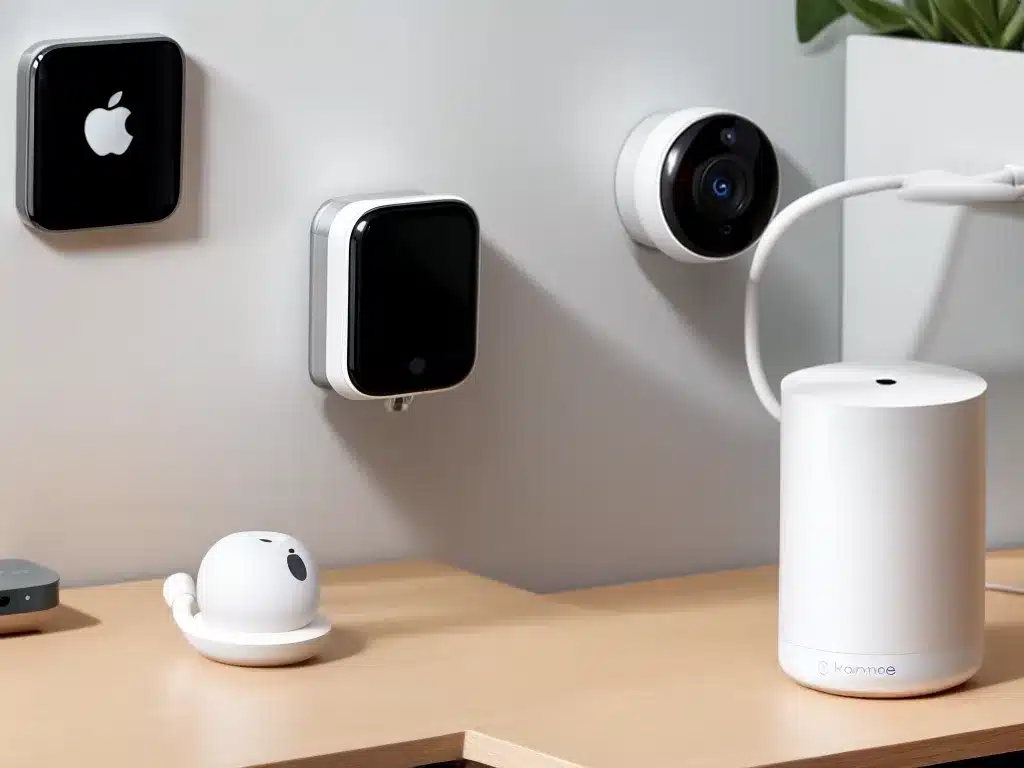
Apple has made a bold move into the Internet of Things (IoT) space with the launch of its new HomeOS platform. HomeOS aims to integrate and control connected devices throughout the home, similar to Google’s Nest and Amazon’s Alexa.
Overview of HomeOS
HomeOS is Apple’s new smart home platform that lets users control, automate and interact with internet-connected devices in their home. Here are some key things to know about HomeOS:
-
Unified system for home automation – HomeOS brings together control of smart lights, thermostats, security cameras, locks and other IoT devices under one roof. This enables easy control and automation across products.
-
Siri integration – HomeOS has deep integration with Siri, allowing voice control of connected home devices and environments. Users can give voice commands to Siri to control devices and environments.
-
Privacy focus – Apple claims HomeOS has strong data privacy built-in. This has been a key focus for Apple compared to competitors like Google and Amazon.
-
HomeKit product certification – Devices need to pass HomeKit certification to work with HomeOS. This ensures product quality and reliability standards are met.
-
iOS and Mac control – HomeOS can be controlled through iOS apps on iPhone, iPad and Mac computers. This provides control from anywhere.
Why HomeOS Matters for Apple
The launch of HomeOS marks a major strategic move by Apple into the smart home and IoT marketplace. Here are some of the reasons this matters:
-
Growth of IoT – IoT devices in homes are rapidly growing in popularity. Getting into this market now positions Apple for future growth as adoption increases.
-
Voice assistant competition – With Google Assistant and Amazon Alexa dominating voice assistants, HomeOS helps Apple and Siri play catch up in the voice-controlled IoT space.
-
Leveraging Apple ecosystem – Apple can leverage its huge ecosystem of existing iPhone, iPad and Mac users to spread HomeOS adoption. Millions already own Apple devices.
-
New revenue stream – HomeOS provides a new services revenue stream for Apple beyond just hardware sales. Recurring subscription revenues could be significant.
-
Extending Apple’s control – HomeOS helps Apple extend its control and ecosystem further into consumers’ homes, entrenching them more into Apple services.
Challenges Facing Adoption of HomeOS
While the launch of HomeOS is a big move for Apple, there are some challenges it faces for widespread consumer adoption:
-
Market already saturated – Major players like Amazon and Google already have established smart home platforms, making it hard for Apple to gain share.
-
Requires new hardware purchases – To work with HomeOS, consumers need to buy new HomeKit-compatible devices, rather than using existing products they already own.
-
Alexa and Google Assistant familiarity – Consumers are already familiar with Alexa and Google Assistant. Apple needs to persuade them to change to Siri and HomeOS.
-
Perception it’s just for Apple fans – HomeOS may be perceived as a platform just for Apple device owners, limiting wider adoption.
-
Privacy concerns – Despite Apple’s privacy focus, consumers may still have concerns about smart home devices and data collection.
Apple’s Approach to Marketing HomeOS
Apple is putting considerable resources behind marketing HomeOS to drive awareness and adoption. Here are some of the key strategies we can expect:
-
Integrated ad campaign – Apple will likely use a massive coordinated ad campaign across its retail stores, website, TV and other channels. This drives brand awareness.
-
Promotions when buying Apple devices – Purchasing new Apple hardware like iPhones or Macs will feature promotions and rebates for HomeOS products to incentivize the ecosystem.
-
Partnerships – Apple may partner with smart home device makers to offer discounted or bundled products with HomeOS subscriptions.
-
Free trial offers – Free 1-month trials of HomeOS will lower barriers to entry and let consumers experiment with the platform.
-
Emphasizing privacy – Apple will position HomeOS as the most private smart home ecosystem, appealing to privacy-focused consumers.
The Bottom Line
The launch of HomeOS marks Apple’s big play into the smart home space to take on Google, Amazon and others. It leverages Apple’s strengths in devices, software and service ecosystems. But Apple faces an uphill battle with competitors already entrenched. Ultimately the ease of use, functionality and privacy protections of HomeOS will determine if it succeeds in the long-term against rivals. But by entering this fast-growing market, Apple strategically positions itself for future revenue growth outside of just device sales.












